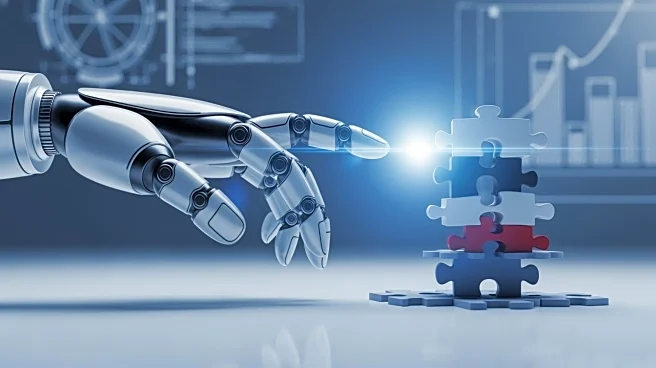What's Happening?
Citi Foundation has announced a $25 million Global Innovation Challenge aimed at tackling youth unemployment and the disruptions caused by artificial intelligence in the labor market. The initiative will
provide $500,000 to each of 50 organizations worldwide that focus on digital literacy, technical training, and career guidance for low-income youth. The foundation's efforts are in response to the high unemployment rate among 22- to 27-year-old degree holders, which is the highest in over a decade outside of the pandemic. The challenge seeks to equip young people with both technical and soft skills necessary for employment in a rapidly evolving job market.
Why It's Important?
The initiative by Citi Foundation is significant as it addresses the growing concern of youth unemployment exacerbated by economic uncertainty and technological advancements. By focusing on digital literacy and soft skills, the foundation aims to prepare young adults for roles that are increasingly influenced by AI and automation. This effort is crucial as companies are shifting their hiring practices, often requiring AI-related skills and eliminating jobs that can be automated. The foundation's support for organizations like NPower and Per Scholas highlights the importance of creating accessible pathways to digital careers, which could have long-term benefits for economic growth and workforce development.
What's Next?
Organizations receiving the grants, such as NPower and Per Scholas, plan to expand their programs to accommodate more young adults, providing them with the necessary skills to navigate the changing job market. These efforts will focus on both technical competencies and soft skills like teamwork and communication, which are essential in roles affected by AI. The initiative may prompt other philanthropic entities and businesses to invest in similar workforce development programs, potentially leading to broader changes in how entry-level positions are structured and filled.
Beyond the Headlines
The challenge underscores the ethical and societal implications of AI's impact on employment. As automation continues to reshape industries, there is a pressing need to ensure that young people are not left behind in the transition. The initiative highlights the importance of balancing technological advancement with human-centric skills, which are crucial for maintaining a diverse and inclusive workforce. This approach may influence future educational and training programs, emphasizing the integration of technology with interpersonal skills.










